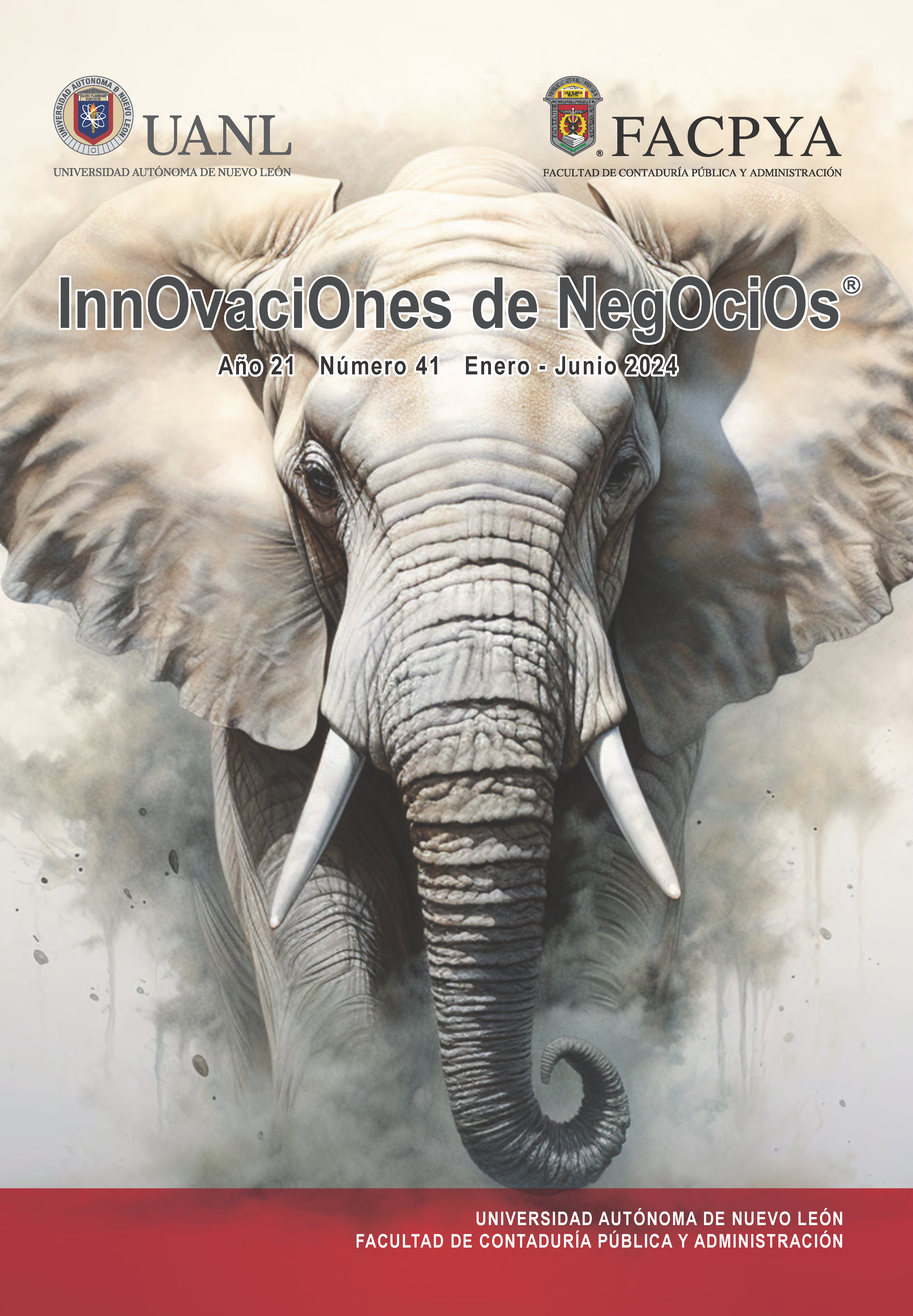Integrated Management Systems (IMS), Implementation and Audits for the Operational Safety of Ships: a Critical Analysis
DOI:
https://doi.org/10.29105/revin21.41-439Keywords:
Clasificación JEL, L9, L91, M4, M42, M420Abstract
The purpose of this article is to critically analyze the relevance of implementing and auditing Integrated Management Systems (IMS) in maritime transportation, especially concerning the operational safety of ships. The proliferation of standards within the framework of the International Organization for Standardization (ISO) since the 1990s led to the integration of these standards, particularly those related to quality, environment, and occupational safety, in order to implement integrated management systems. As a result, the first IMS guidelines emerged, which quickly expanded into the maritime transportation industry. The study was conducted using a qualitative approach. Through this inquiry, problematic questions arose, which were addressed in the discussion section of the results. Critical analysis was essential, as the authors of the study expressed dissatisfaction with the current situation regarding IMS for ship operations. The main conclusion is that the advocated position is against the implementation and audits of an IMS in merchant ship operations. This stance is based on the additional workload involved in handling documents for ship officers, without finding added value that justifies the adoption of such a system.
Downloads
References
Abad Puente, J. y Sánchez-Toledo Ledesma, A. (2012). Aspectos claves de la integración de sistemas de gestión. Asociación Española de Normalización y Certificación (AENOR). http://librodigital.sangregorio.edu.ec/librosusgp/15056.pdf
American Bureau of Shipping (Abril de 2020). Guide for marine health, safety, quality, environmental and energy management. https://maritimecyprus.com/wp-content/uploads/2022/09/ABS-integrated-man-systems-guide-Apr20.pdf
Asociación Española para la Calidad (2016). Tendencias y experiencias en integración de sistemas. https://www.aec.es/c/document_library/get_file?uuid=2f9c8623-b422-4b34-bb66-d406418bcbf5&groupId=10128
BSI British Standards (2012). Specification of common management system requirements as a framework for integration. https://webstore.ansi.org/preview-pages/BSI/preview_30254209.pdf
Chruzik, M. (2020). Integration Model of Management Systems in Sea Transport. International Journal on Marine Navigation and Safety of Sea Transportation, 14, pp.393-396. https://www.transnav.eu/Article_Integration_Model_of_Management_Chruzik,54,1015.html. DOI: https://doi.org/10.12716/1001.14.02.16
Det Norske Veritas (2015). Integrated management systems onboard ships. Safety, quality, environment, and occupational health and safety. https://maritimecyprus.com/wp-con tent/uploads/2015/03/dnv-integrated-management-systems-onboard-ships-1.pdf
Ferguson, M., García, M. y Bornay, M. (2002). Modelos de implantación de los sistemas integrados de gestión de la calidad, el medio ambiente y la seguridad. Investigaciones Europeas de Dirección y Economía de la Empresa, (8), 97-118. https://dialnet.unirioja.es/servlet/articulo?codigo=251464
Fernández, C.(2015). Sistemas integrados de gestión para buques mercantes: Una aplicación a la gestión de información meteorológica necesaria para planificar la travesía y controlar la navegación [Tesis doctoral, Universidad de Cantabria]. Repositorio abierto de la Universidad de Cantabria. https://repositorio.unican.es/xmlui/handle/10902/8323
Frost, R. (2009). Overview of ISO 9001 and ISO 14001. International Organization for Standardization. https://www.iso.org/search.html?q=9001&hPP=10&idx=all_en&p=3
Hernández, R., Fernández, C. y Baptista, M. (2014). Metodología de la Investigación. México DF: McGraw-Hill.
International Standardization for Organization (2021). ISO Survey of certifications to management system standards - Full results. https://www.iso.org/committee/54998.html?t=KomURwikWDLiuB1P1c7SjLMLEAgXOA7emZHKGWyn8f3KQUTU3m287NxnpA3DIuxm&view=documents#section-isodocuments-top
Juran, J. y Gryna, F. (1993). Manual de control de calidad. McGraw-Hill.
Karapetrovic, S. Casadesús, M. y Heras, I. (2006). Dynamics and integration of standardized management systems: an empirical study. Serie GITASP No.1. Documenta Universitaria.
López, M. y Ramírez, M. (2023). La Seguridad Marítima como valor; más allá del cumplimiento con la certificación. InterSedes, 24(49), 238-254. https://doi.org/10.15517/isucr.v24i49.50812 DOI: https://doi.org/10.15517/isucr.v24i49.50812
Morles, V. (2002). Ciencia, tecnología y sus métodos. Ediciones del Vicerrectorado Académico, Universidad Central de Venezuela.
Organización Internacional para la Estandarización (15 de septiembre de 2015). Norma Internacional ISO-9000 Sistemas de gestión de la calidad — Fundamentos y vocabulario. Ginebra.
Organización Internacional para la Estandarización (julio de 2018). Directrices para auditar sistemas de gestión. Ginebra.
Organización Marítima Internacional (6 de diciembre de 2017). Directrices revisadas para la implantación del Código internacional de gestión de la seguridad (Código IGS) por las Administraciones. Resolución A.1118 (30). Londres.
Organización Marítima Internacional (2018). Código Internacional de gestión de la seguridad operacional del buque y prevención de la contaminación y directrices para su implantación. Londres.
Piniella, F., Silos, J. y Monedero, J. (4 -7 de enero de 2008). Hacia un sistema integral en los buques: Seguridad, Protección, Calidad y Medioambiente [Congreso Nacional de Salvamento en la Mar]. https://www.researchgate.net/publication/292994721_Hacia_un_sistema_integral_de_seguridad_en_los_buques_Seguridad_Proteccion_Calidad_y_Medioambiente
Simon i Villar, A. (2012). An empirical analysis of integrated management systems (Gerona/Cataluña). [Tesis doctoral]. Universidad de Girona. https://www.tesisenred.net/bitstream/handle/10803/84065/tasv.pdf?sequence=5&isAllowed=y
Downloads
Published
How to Cite
Issue
Section
License
Copyright (c) 2023 Miguel López García

This work is licensed under a Creative Commons Attribution-NonCommercial-ShareAlike 4.0 International License.
The InnOvaciOnes de NegOciOs magazine is a free and open access electronic magazine of a scientific-academic nature and is a publication of the Autonomous University of Nuevo León, in which the authors retain their copyright and grant the magazine the exclusive right to first publication of the work. Third parties are allowed to use the published content, as long as the authorship of the work is acknowledged and the first publication in this journal is cited.
For more information, please contact the Research Secretary (FACPyA) of the Autonomous University of Nuevo León. Telephone: (81) 1340-4430. Email: revinnova@uanl.mx










